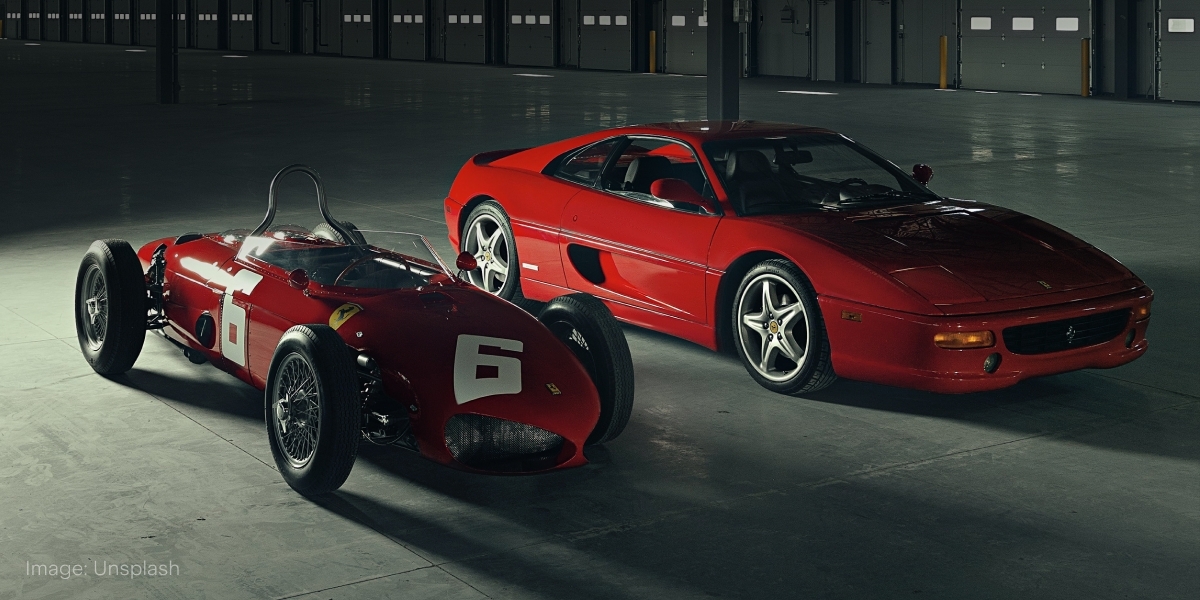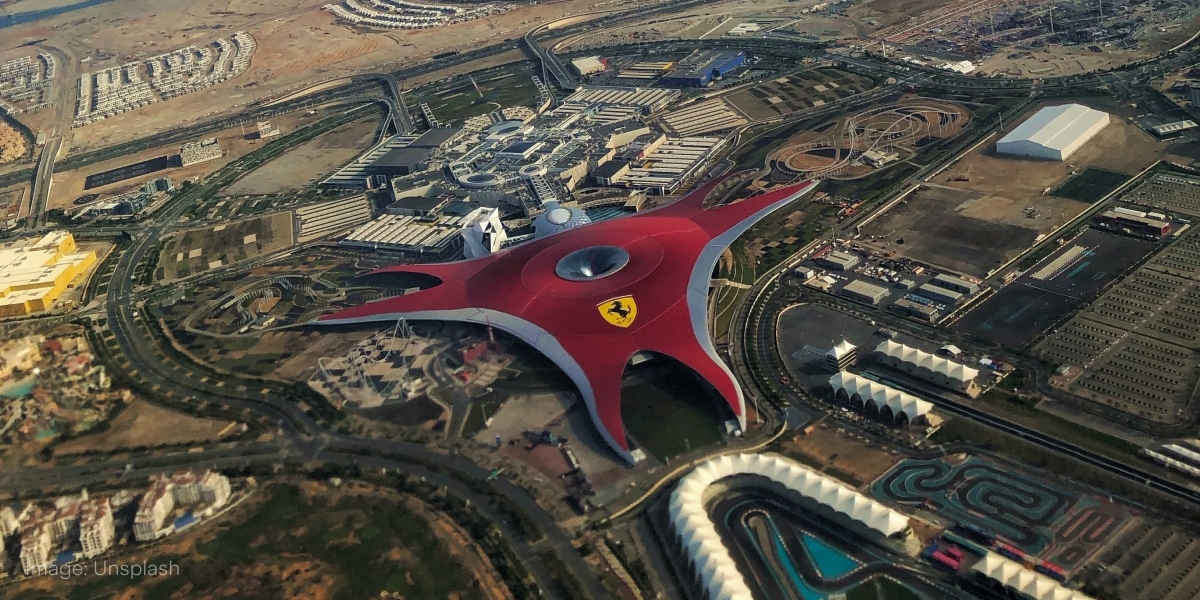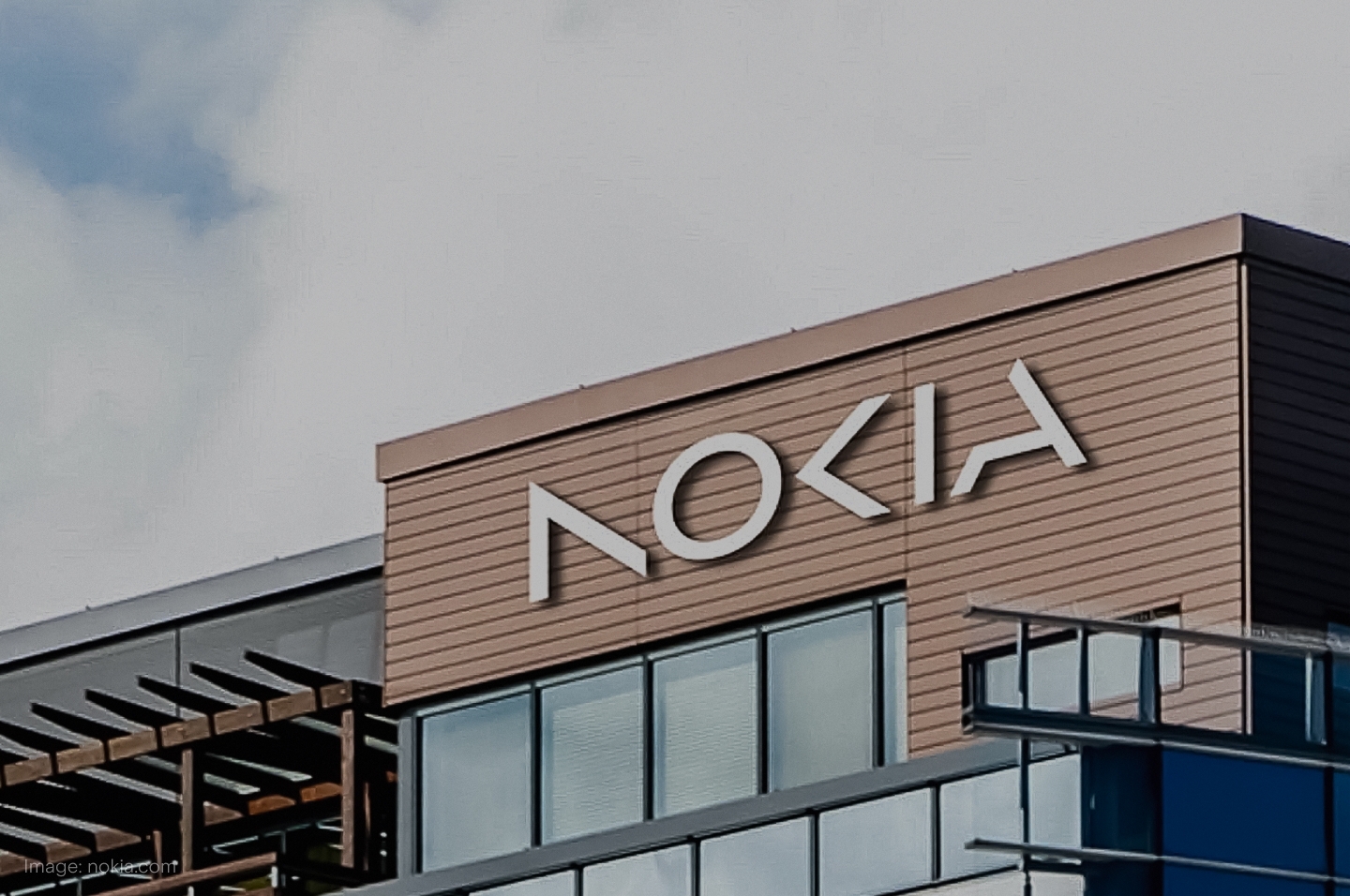
Under the Spotlight Wall St: Ferrari (RACE)
The world’s most famous sports car manufacturer and racing team, Ferrari has amassed millions of fans across the planet with their lightning fast vehicles and sharp designs. Will their shares be on the pole position of the stock market? Let’s put it Under the Spotlight.
.jpg&w=3840&q=100)
Think of a luxury sports car. Chances are the vehicle is red, and probably a Ferrari. With a reputation for speed, performance and exclusivity, the Italian automaker has become an icon of the automotive industry. Ferrari ($RACE) is one of the most recognisable brands in the world, and has been producing high-end vehicles for over seven decades. Founded in 1939 by Italian racing car driver and entrepreneur Enzo Ferrari, the company has grown from a small racing team to a global brand.
Enzo Ferrari had big ambitions for the company from the beginning. He wanted to create a racing team that was faster and more successful than any other. While not originally planning to become a car manufacturer, he eventually came to the belief that if he could build a car that was fast enough to win races, he could attract wealthy buyers and grow the business. To achieve this, Enzo developed a unique approach to design and engineering that would become the cornerstone of the Ferrari brand.

Full throttle
The company began producing road cars in 1947 with the model 125 S, but it was the racing success that really put Ferrari on the map. The automaker has won numerous championships and races over the years, not limited to Formula One, including Le Mans, and Daytona, to name just a few. Ferrari's success on the racetrack has helped it to fuel its growth as a luxury automaker.
One of the most significant moments in Ferrari's history came in 1962 when Enzo Ferrari met with Henry Ford II to discuss a possible merger between Ferrari and Ford ($F). The talks ultimately fell through, and Enzo Ferrari famously said that he would rather sell horses than cars to Ford. The snub inspired Ford to launch a campaign to beat Ferrari at the prestigious 24 Hours of Le Mans race, which Ferrari had won six times in a row. In 1966, Ford finally succeeded in beating Ferrari, but ultimately the Italian automaker Fiat would be the one to acquire the sports car manufacturer, buying a 50% stake in 1969, then growing it to almost 90% in the following decades before eventually culminating in a spin-off in 2016.

Shifting gears
In the 1970s, the company faced a number of challenges, including the oil crisis and declining demand for high-performance sports cars as inflation ran rampant across the globe. In addition, the Ferrari Dino, a smaller and more affordable sports car aimed at a wider market released at the time, didn’t take off as it was perceived to be too cheap for elite customers. Ferrari managed to weather these challenges and continue to grow. In the 1980s and 1990s, the company introduced a number of new models, including the Testarossa and the legendary F40, huge successes which helped the brand to maintain its position as the main leader in sports vehicles.
In the 21st century, Ferrari has continued to innovate and expand. The company has introduced a number of new models, including the Enzo and the LaFerrari, the automaker’s first hybrid vehicle, with a full electric car to be launched in 2025. Ferrari has also expanded its global reach, with dealerships and showrooms in more than 60 countries. Despite having grown into one of the world's most iconic luxury automakers, Ferrari faces challenges as it aims to continue growing. The company’s exclusivity is both a strength and a weakness for Ferrari. While it helps to maintain the brand's prestige and value, it also limits the potential market for its products.

A dangerous track
In order to try to expand its reach and attract new buyers, Ferrari has introduced a number of new models in recent years, including the Portofino and the Roma, which sell around the US$225,000 to US$250,000 range, considered inexpensive when compared to other higher-end models like the 812, that can sell for twice as much, not to mention special edition models that can fetch millions.
These high selling prices make for large revenues and big margins: in FY 2022, global revenue reached €5.1b (+19.30% YoY) with net profits of €939m (+12.72% YoY). Not only that, but the number of cars sold grew at a 6.5% CAGR from 2004 to 2022, more consistently than the competition. With such great numbers, Ferrari became more than a luxury car company: it became a luxury stock. Currently trading with a price/earnings ratio of around 50, the stock divides investors between those who consider it extremely overvalued, and those who believe the brand equity could make up for the hefty price.
Brand equity might get you a long way: the automaker is consistently expanding its lifestyle and fashion brands. In 2010, Ferrari opened a theme park in Abu Dhabi called Ferrari World. The park was intended to be a celebration of the brand, with rides and attractions inspired by the company's cars and racing history. However, the park still struggles to attract visitors, and was criticised for being too expensive and lacking in exciting attractions. These detours from its main operations are still unable to make a difference in the company’s income statement, amounting to only €28m in 2022. For FY 2023 the company expects revenues of €5.7b (+11.76% YoY) with margin improvements of 3%, hoping to still be the fastest horse in the race.
This does not constitute financial advice nor a recommendation to invest in the securities listed. The information presented is intended to be of a factual nature only. Past performance is not a reliable indicator of future performance. As always, do your own research and consider seeking financial, legal and taxation advice before investing.

